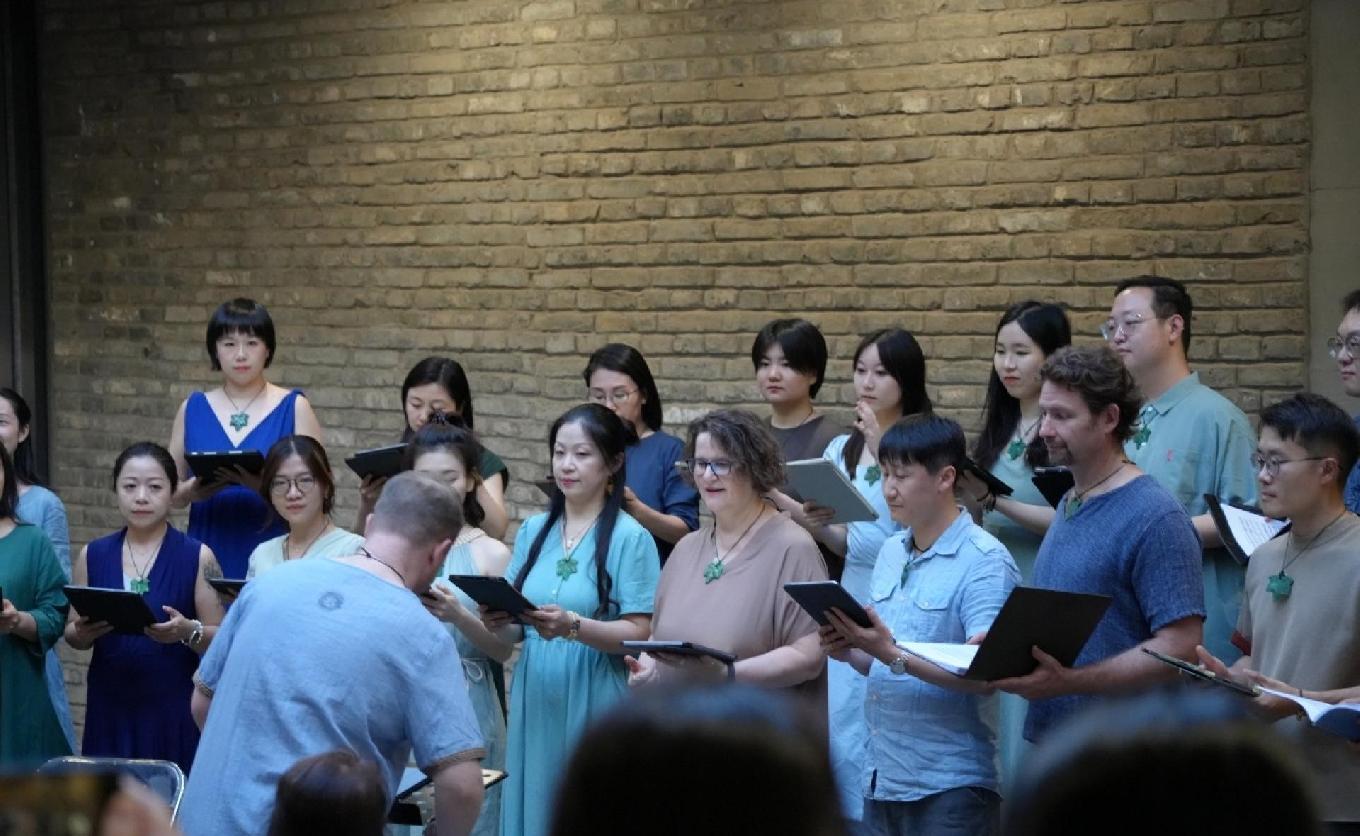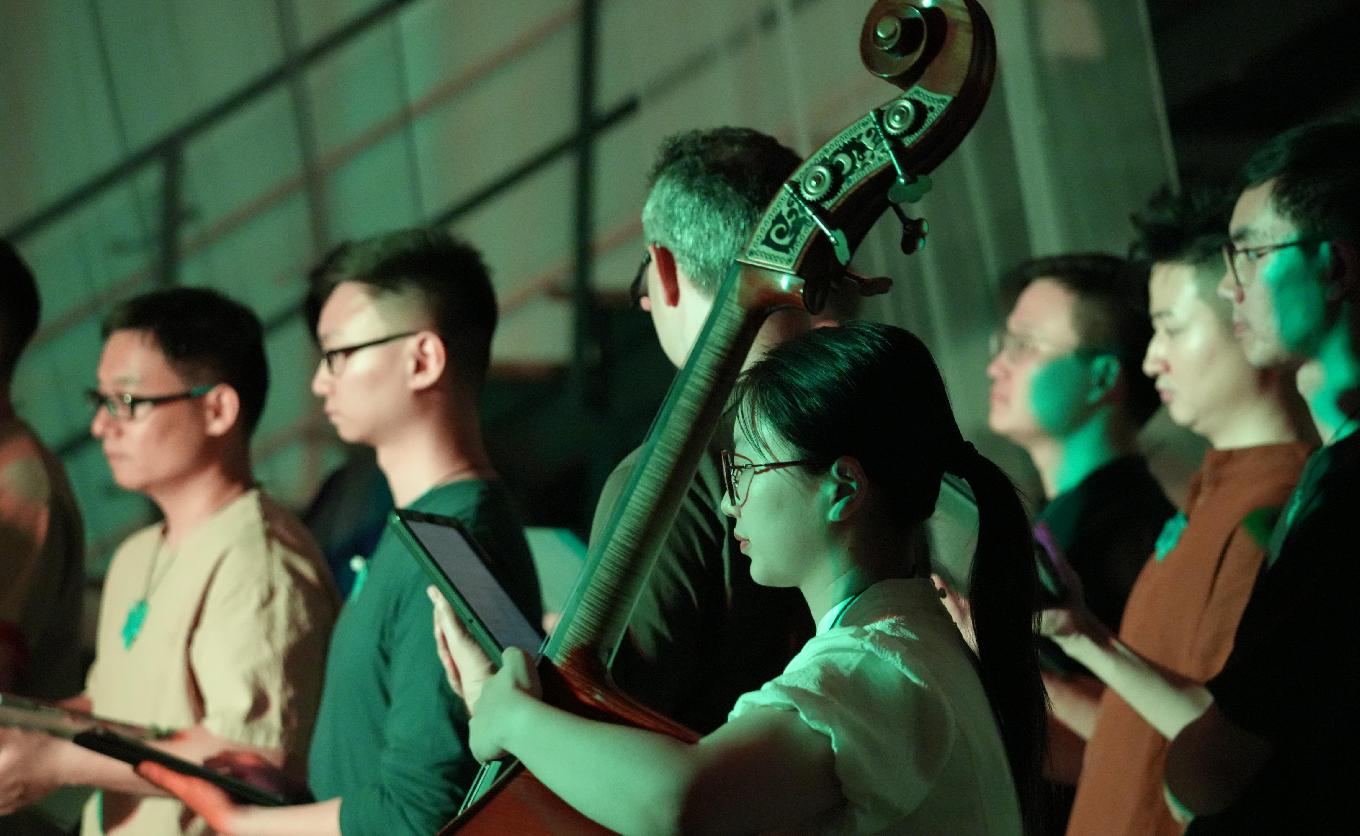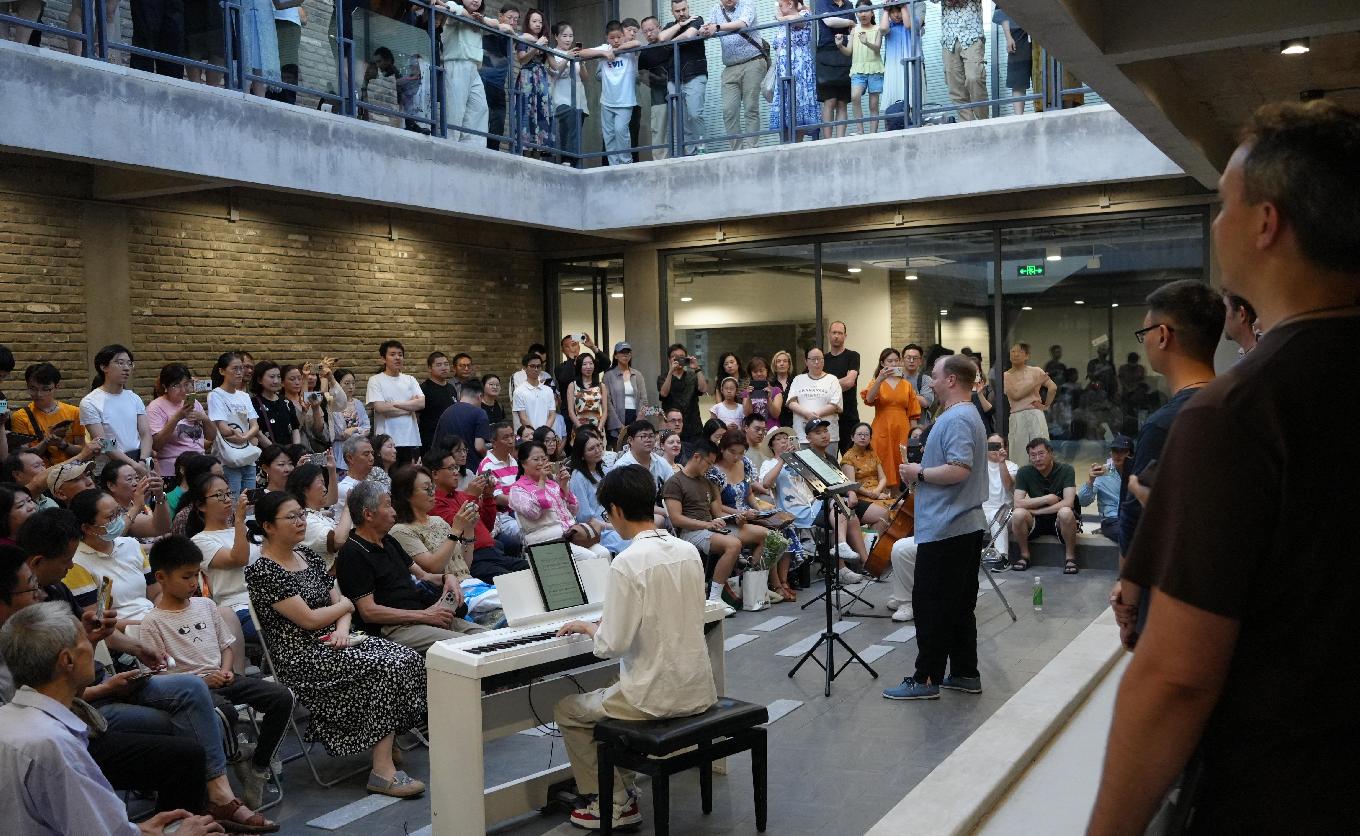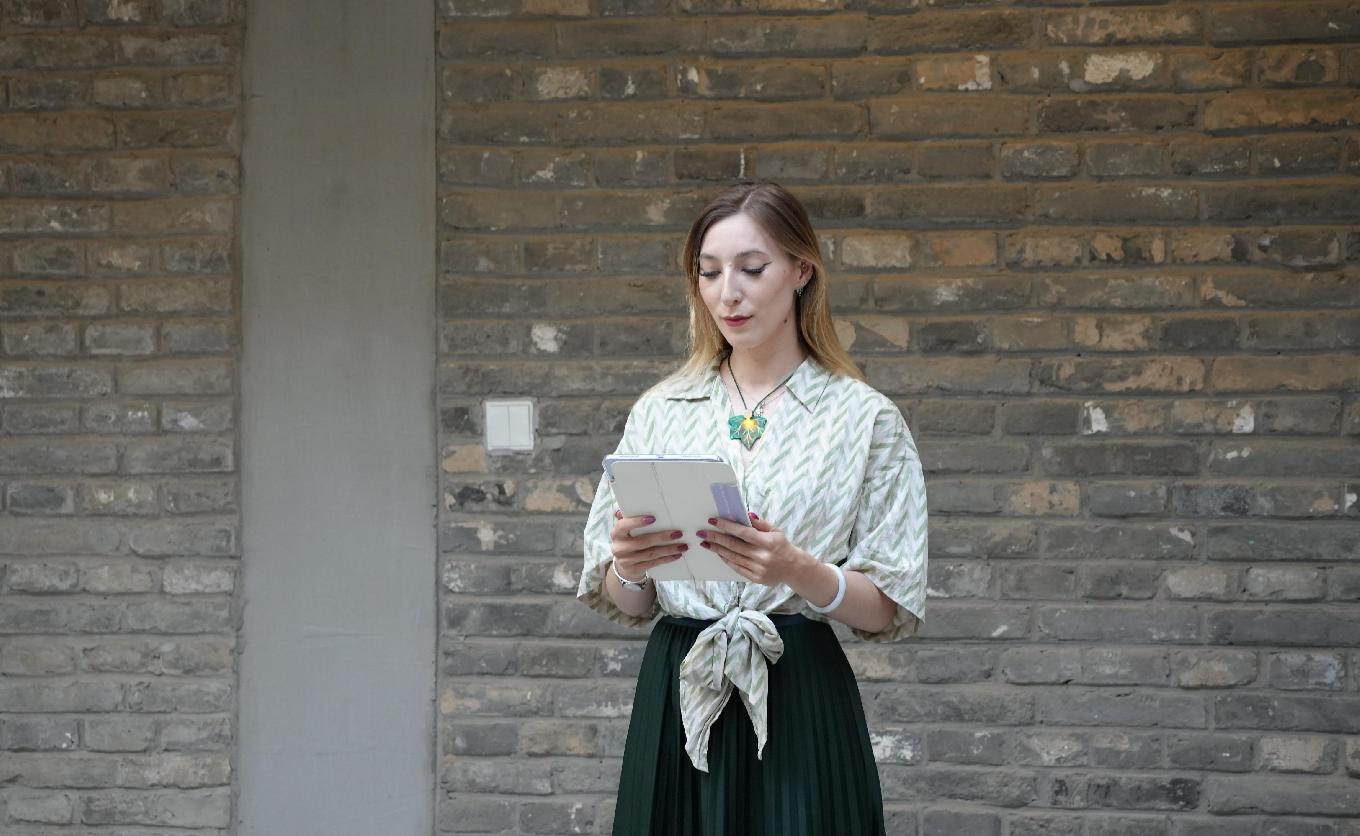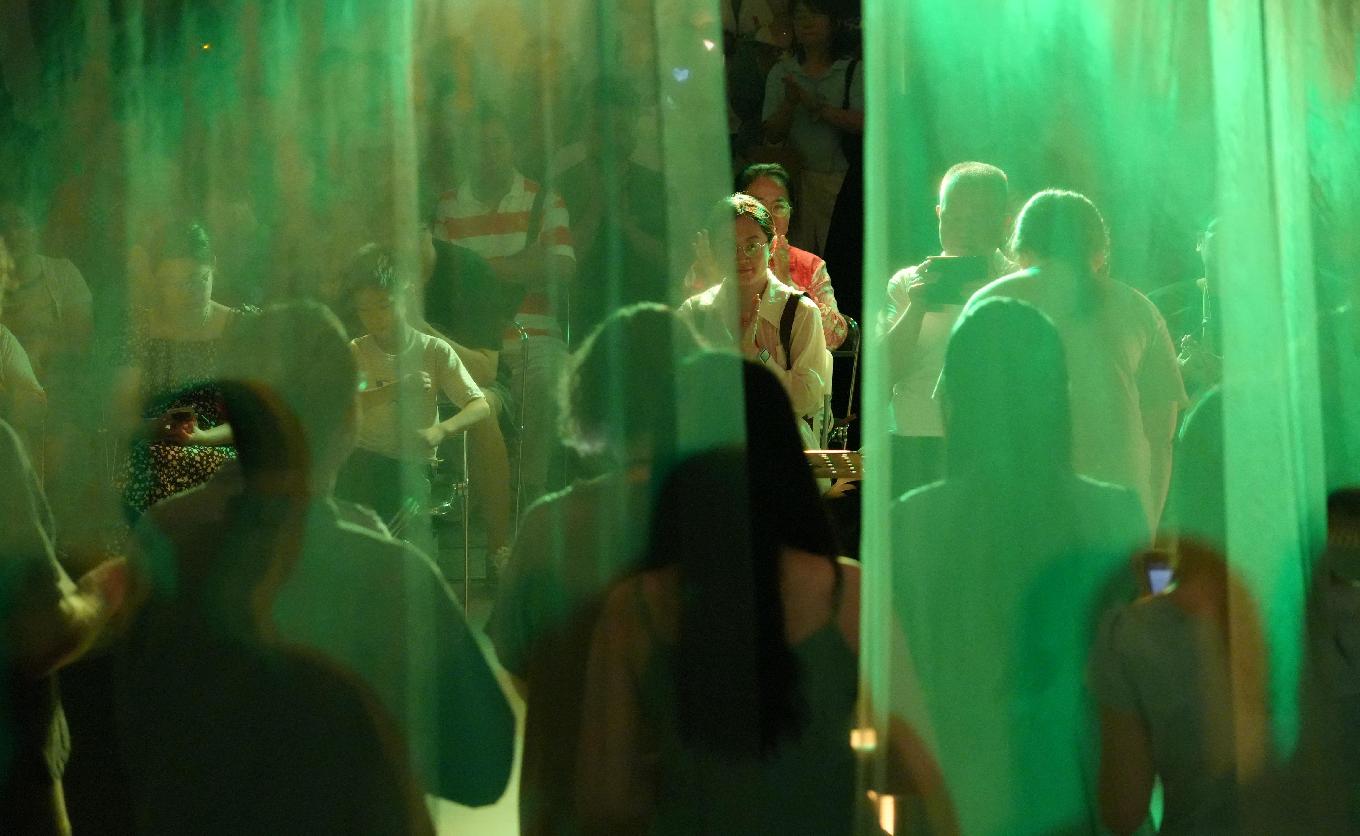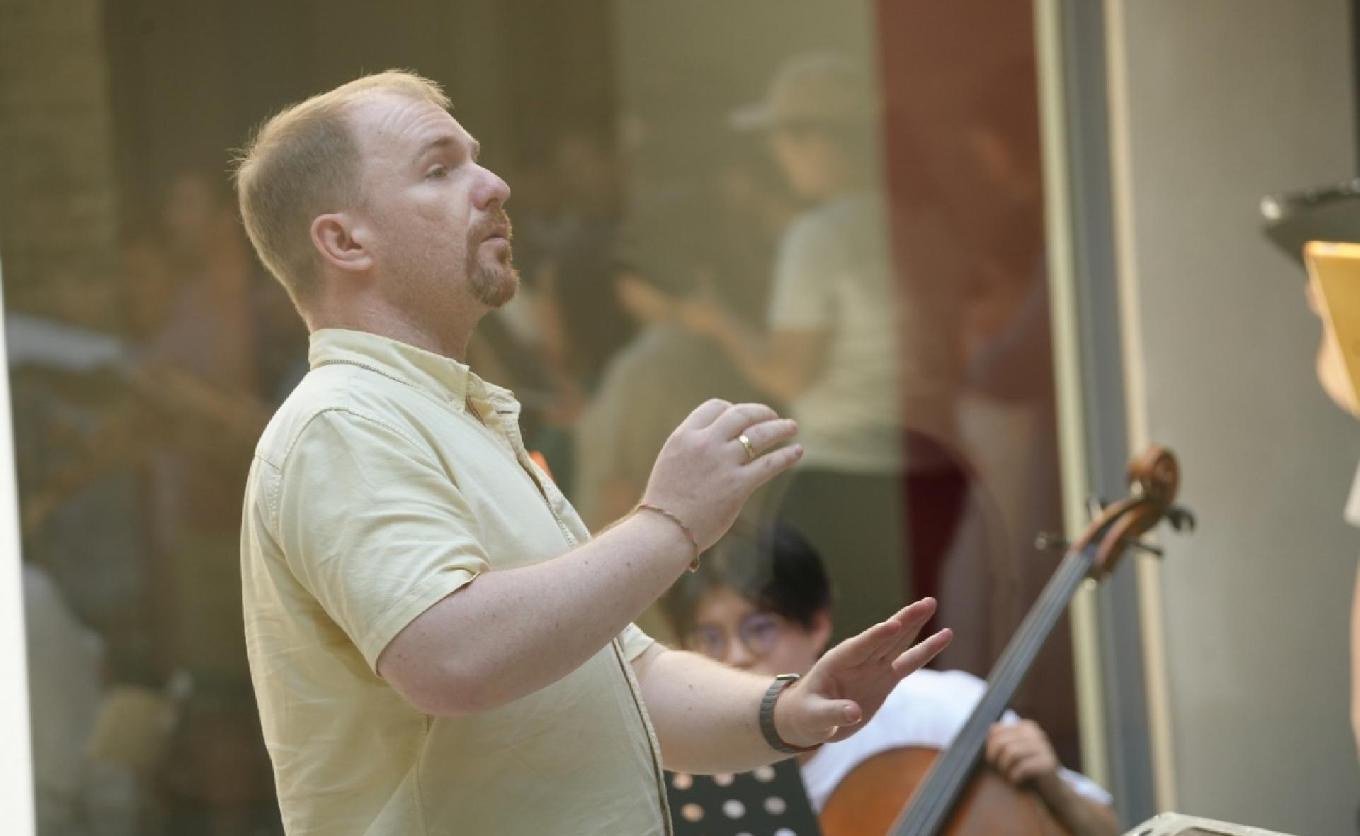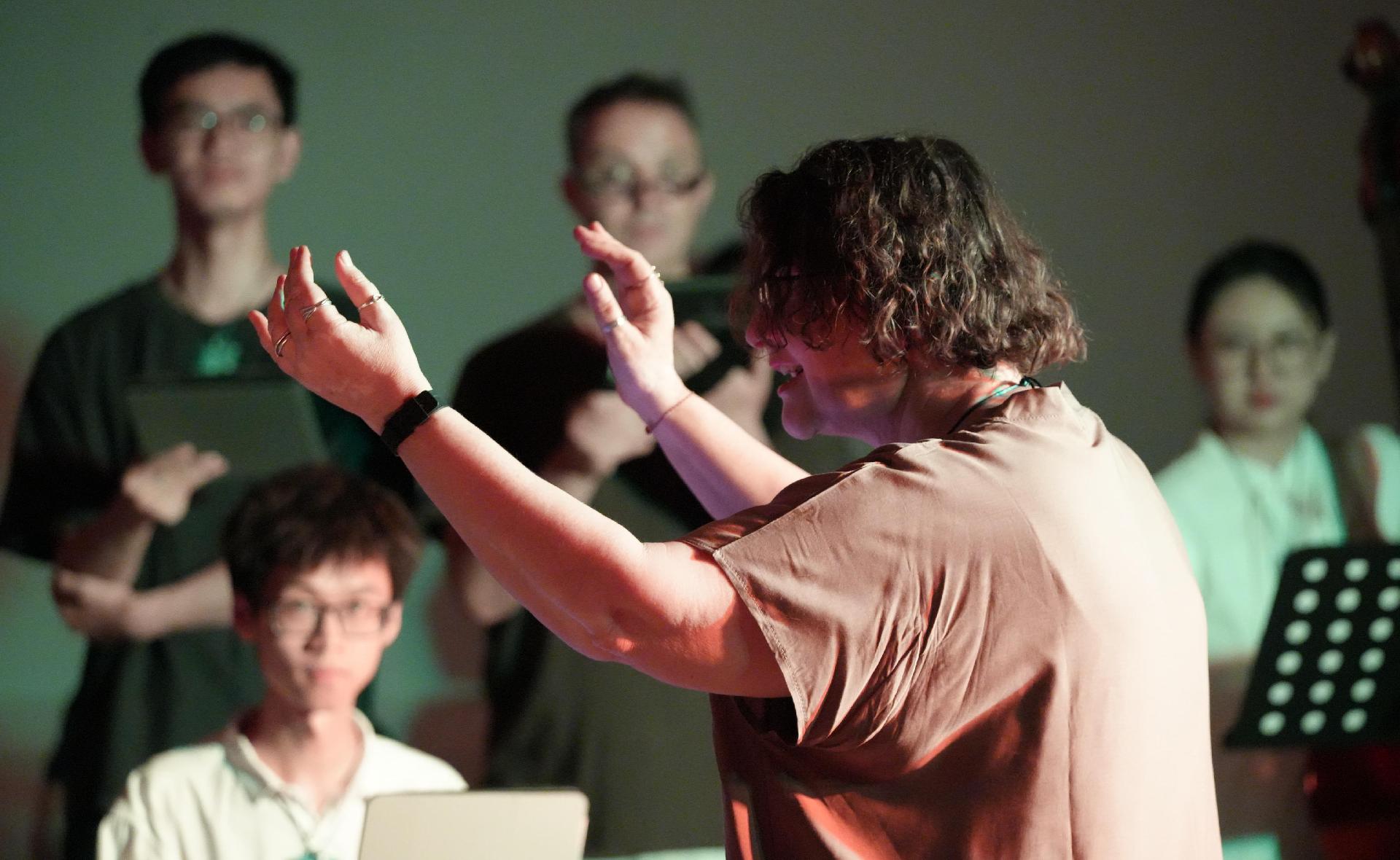
Hungarian Literature and Thematic Choir Concert in Focus in Beijing
The Liszt Institute Beijing organized a variety of diverse and popular programs in the Chinese capital. As a result of their efforts, second-year Hungarian language students at the Beijing Foreign Studies University participated in a creative writing course and a literary-focused mini-conference. They also launched their “Literary Café” program, which paid tribute to the 200th anniversary of the birth of Mór Jókai. Due to great interest, the Institute plans to continue this tradition with further events. On the occasion of Midsummer Night, the Institute’s Voca-Liszt Choir performed a choral concert honoring Shakespeare, which also enjoyed tremendous popularity in China.
Organized by the Liszt Institute Beijing, second-year Hungarian language students at Beijing Foreign Studies University participated in a creative writing course and a literary-focused mini-conference aimed at deepening their understanding of Hungarian poetry and practicing text creation. During the sessions, students explored both classic and contemporary Hungarian poetry. Through a joint analysis of Sándor Petőfi’s “My Mother’s Hen” and János Lackfi’s “My Father’s Rooster”, they gained insight into humor and linguistic playfulness. In the second part of the program, students practiced automatic writing techniques: following a short, guided meditation, they spontaneously composed original texts. On the second day, with the help of writer Andrea Pásztor, the students further developed, complemented, and shaped their creations into poems. As the program concluded, several students shared their finished poems with the audience.
The “Literary Café” reading evening was organized by the Liszt Institute and held at the Bengzhu Bar as a tribute to the 200th anniversary of Mór Jókai’s birth. The event aimed to present this prominent figure of 19th-century Hungarian literature in a meaningful way and place his work in a contemporary context. The evening was moderated by Anna Lujza Honecz, Director of the Liszt Institute Beijing, and the invited guest was contemporary Hungarian writer Andrea Pásztor. In her presentation, Pásztor offered a personal perspective on Jókai’s literary significance, placing special emphasis on his lesser-known poems and works, excerpts of which she read during the event. Following this, the author spoke about her own career, creative philosophy, and the current situation of contemporary Hungarian writers and poets. She also offered a glimpse into her upcoming novel by reading selected excerpts to delight the audience. The friendly literary evening attracted great interest, with over thirty attendees including Hungarians living in Beijing, Chinese students studying Hungarian, and staff members from the Hungarian Embassy in Beijing. Based on the positive feedback from participants, the “Literary Café” event was very well received, and the Institute is likely to organize such gatherings regularly in the future.
n June 21, 2025, the thematic choir concert titled “Songs of A Midsummer Night’s Dream” was held at the Choi Centre – Cloud House Gallery in Beijing to celebrate Midsummer Night. The program centered around the immortal texts of William Shakespeare, set to choral compositions by contemporary composers from the UK, USA, Sweden, Finland, Estonia, and Hungary. What made this concert unique was its structure—not based on the composers’ identities, but on the geographical and cultural origins of the literary texts used—offering a rich showcase of diverse national musical interpretations of Shakespeare’s oeuvre. The event featured performances by the Voca-Liszt Choir, led by Kodály instructor Edit Lánczky from the Kodály Point, and the local community choir RUSingers. The collaboration between the two choirs was conducted by four maestros — two Hungarian and two Chinese artists.
The concert was enhanced by live narration and visual projections, and the audience actively participated by moving together with the choirs throughout the gallery spaces during venue changes, fully engaging with the unique layout of the exhibition hall.

